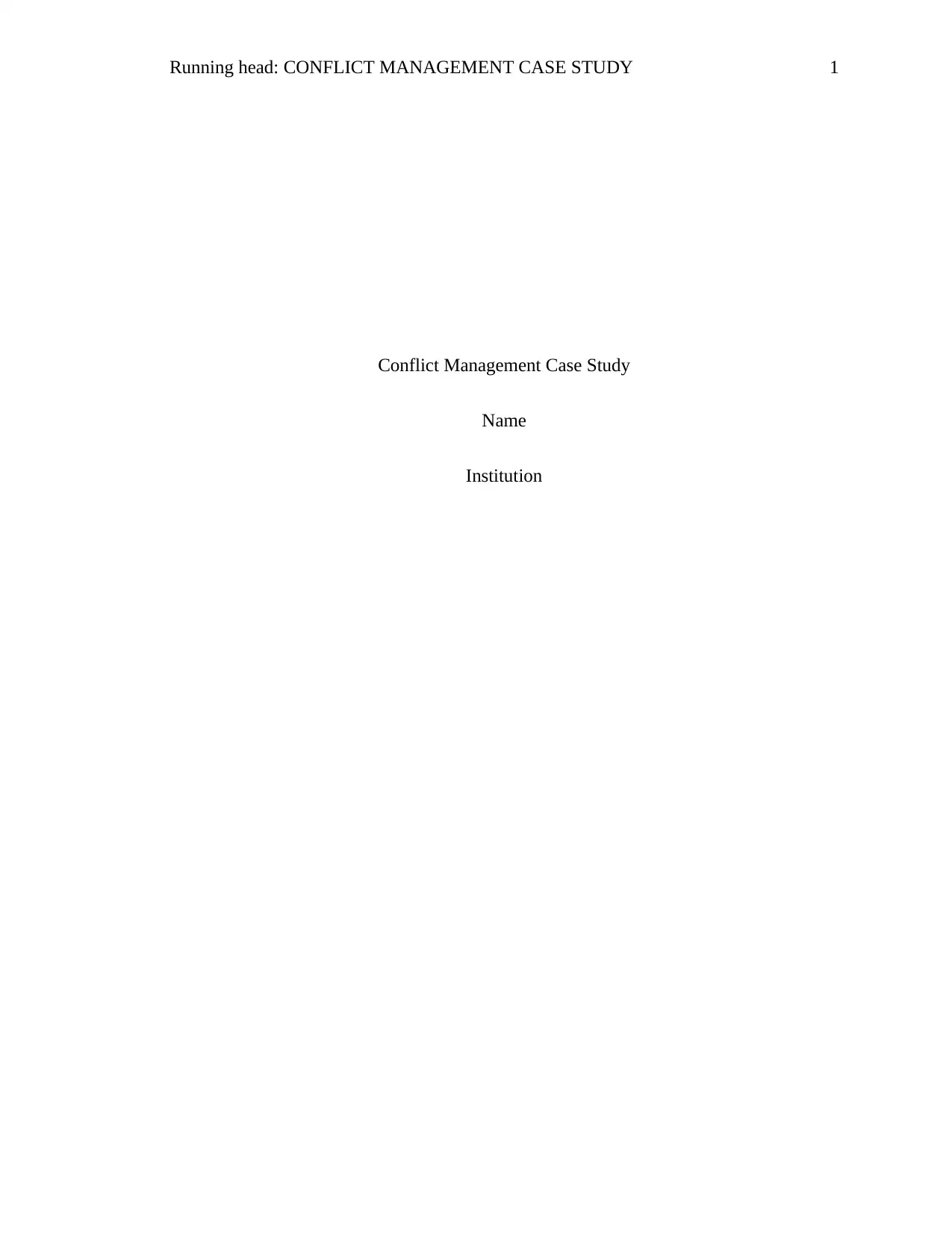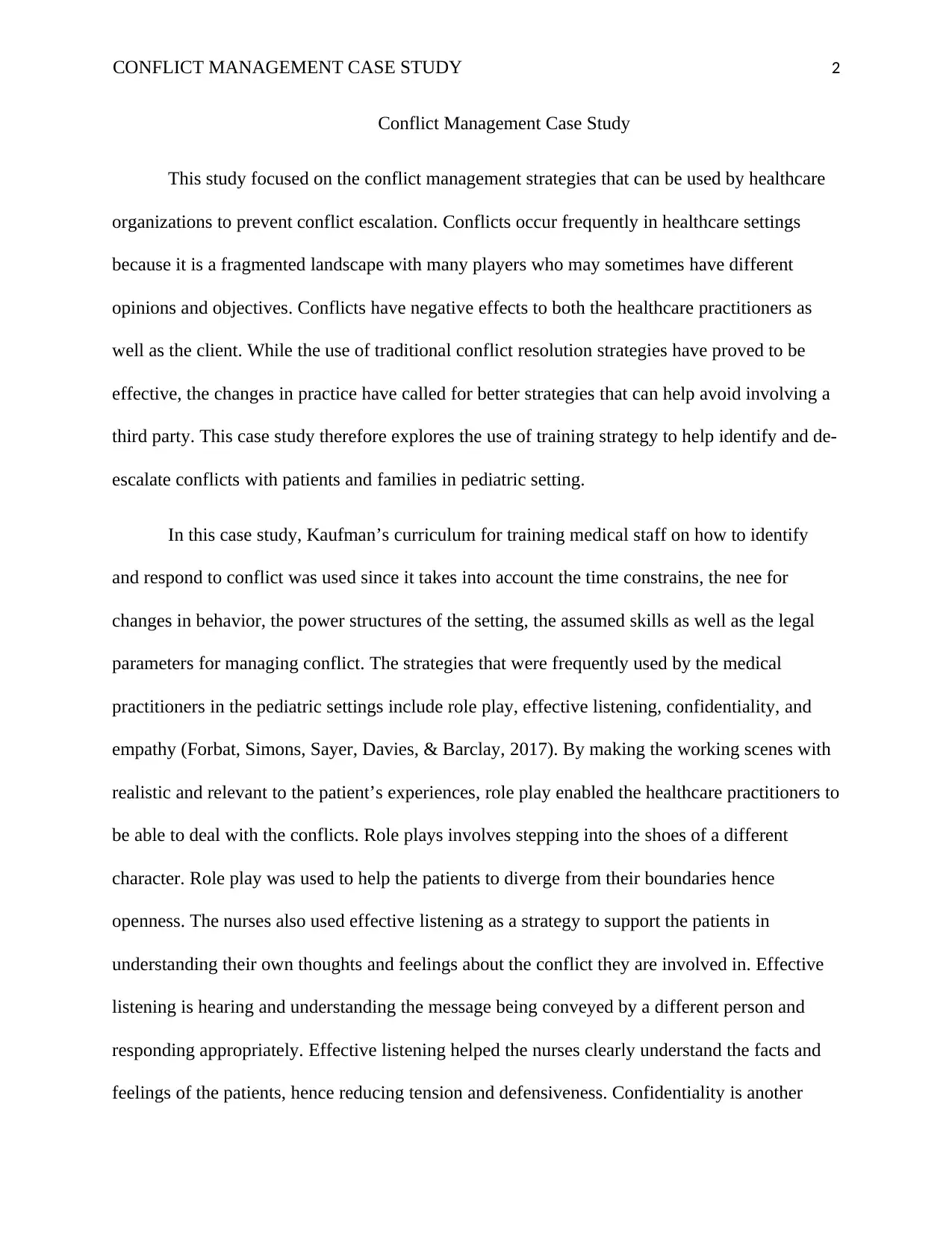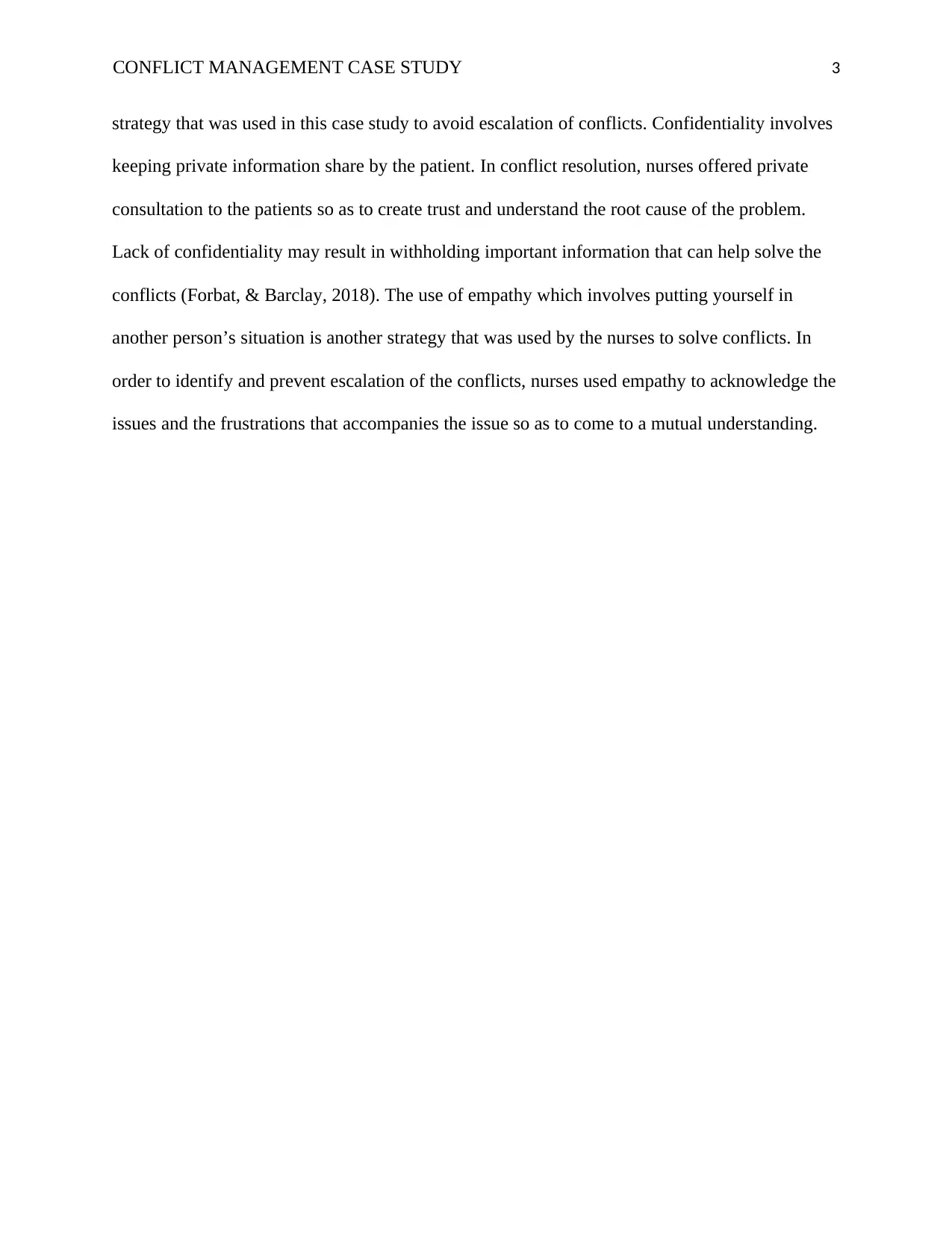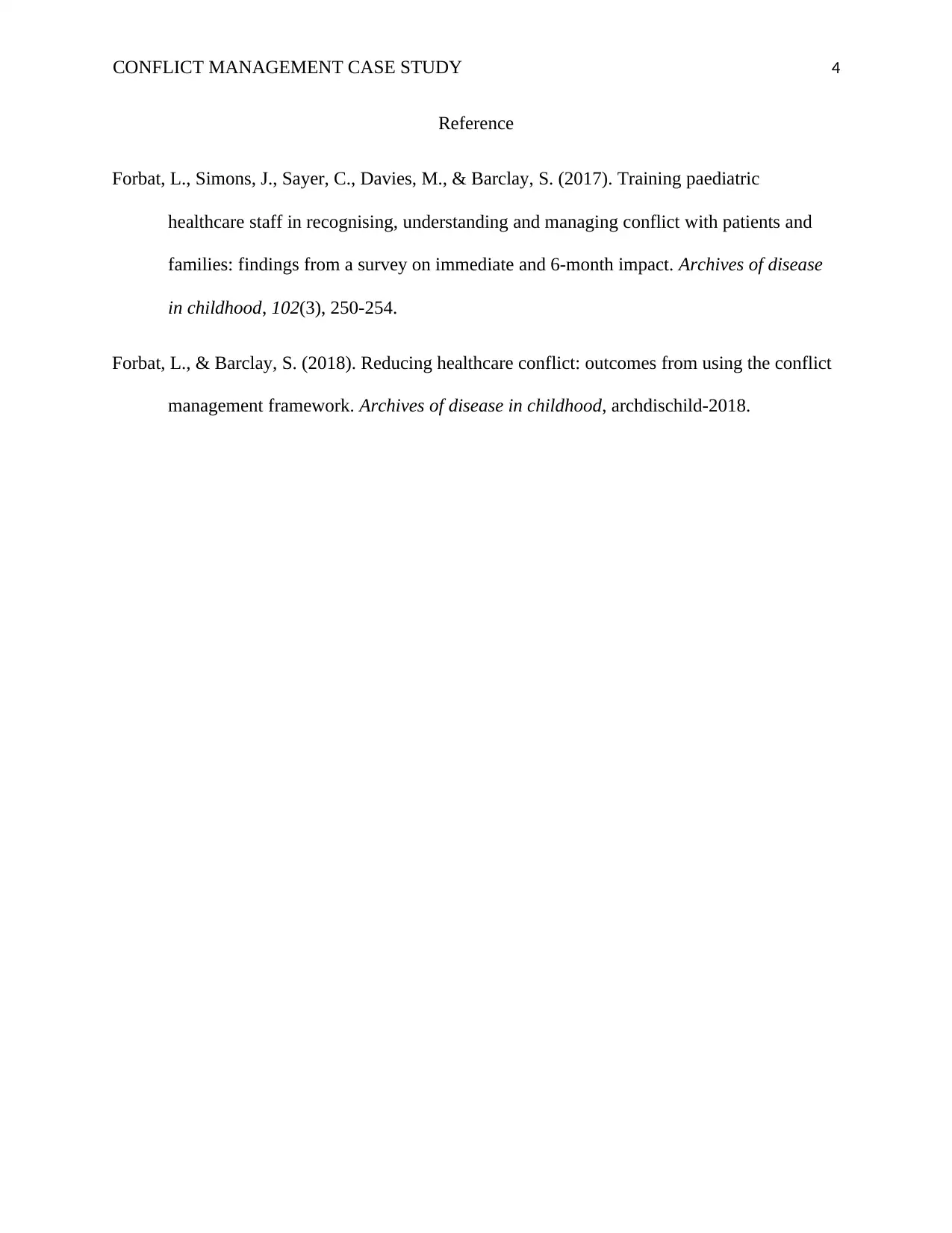Conflict Management Case Study: Training in Pediatric Healthcare
VerifiedAdded on 2023/04/10
|4
|526
|249
Case Study
AI Summary
This case study examines conflict management strategies employed in pediatric healthcare settings to prevent conflict escalation. It highlights the frequent occurrence of conflicts due to the fragmented nature of healthcare and the diverse opinions of stakeholders, emphasizing the negative impact on both practitioners and patients. The study explores the use of training, specifically Kaufman’s curriculum, to equip medical staff with the skills to identify and de-escalate conflicts with patients and families. Key strategies used by healthcare practitioners include role-play, effective listening, confidentiality, and empathy, all aimed at fostering understanding, trust, and mutual resolution. The case study concludes by referencing research that supports the effectiveness of these strategies in reducing healthcare conflict.
1 out of 4











![[object Object]](/_next/static/media/star-bottom.7253800d.svg)